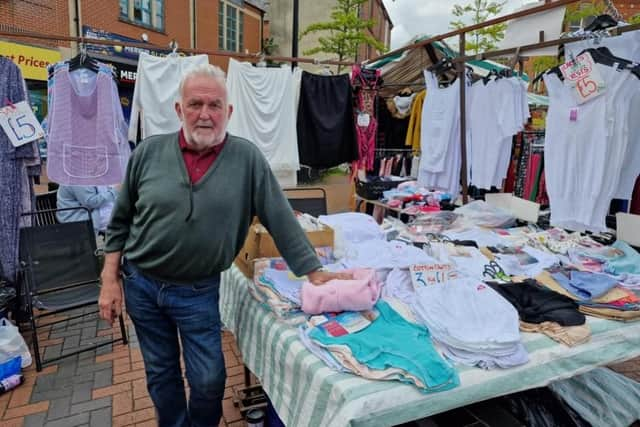Fears grow for future of 'dead' Bulwell Market as 'next generation does not want to come'
and live on Freeview channel 276
Standing amid racks of clothing on the Bulwell market stall he has run for 44 years, Kevin Fitzpatrick delivers a simple and frank answer when asked how things are really going.
He simply thinks the market is “dead”.
He said: “The next generation does not want to come on markets, because it is just too much hard work now.


Advertisement
Advertisement
“We’ve been in a downward spiral – people used to follow family, but there is no money in it.”
Regular markets selling typical, everyday goods date back hundreds of years, as far back as the Roman Empire and medieval Britain.
Market towns bustled with activity for centuries before changing shopping habits and then the impact of high-speed internet connections changed retail forever in the early 21st century.
In Nottingham, the Victoria Centre’s indoor market opened in 1972 and was once home to more than 200 stalls.
Advertisement
Advertisement
Now just 26 traders remain and those still there wait in limbo for a final decision from Nottingham Council after it announced it was considering ending the lease 20 months ago, as it looks to save £39 million over 50 years.
A similar fate is feared in Bulwell.
While Market Place had a makeover in 2017, with £300,000 spent on regeneration works, it is far from the bustling markets of the 1980s.
Kevin said: “All these years ago, a tenner would have been a day’s wages, but £100 now won’t cover wages.
“Over the years, on the TV and the media, they put us down and used to say all we sold were counterfeit goods.
Advertisement
Advertisement
“If you go abroad, markets are bigged-up, but in the UK it is not.
“There used to be a few decent days here before Covid, but there is no future for markets now.
“The only ones which do well now are the specialist markets.”
The National Association of British Markets estimates there were nearly 46,000 traders working markets in 2009, but that number had dropped to about 32,000 by 2018 and has likely fallen again since.
Advertisement
Advertisement
Kevin argues the case for the return of a ‘Toby’ – a traditional market manager who organises pitches and collects rent – as there are “too many faces running around” Bulwell Market to manage it effectively.
The benefits of a Toby in contemporary times have already been seen in Bingham, where the Thursday market has been “thriving”.
A Toby, however, requires investment and cash-strapped councils do not have budgets available.
Coun Pavlos Kotsonis, city council portfolio holder for leisure and culture, says people’s shopping habits “were already changing” when the pandemic hit.
Advertisement
Advertisement
He said: “It’s an issue that towns and cities across the world are grappling with and impacts global brands and our high streets as well as traditional markets.
“The council has provided support to local markets, but there’s a limit to what we can do.
“At all local markets, we provided support to traders during the pandemic.
“Ultimately, though, it’s up to people whether they choose to shop at markets or not.”